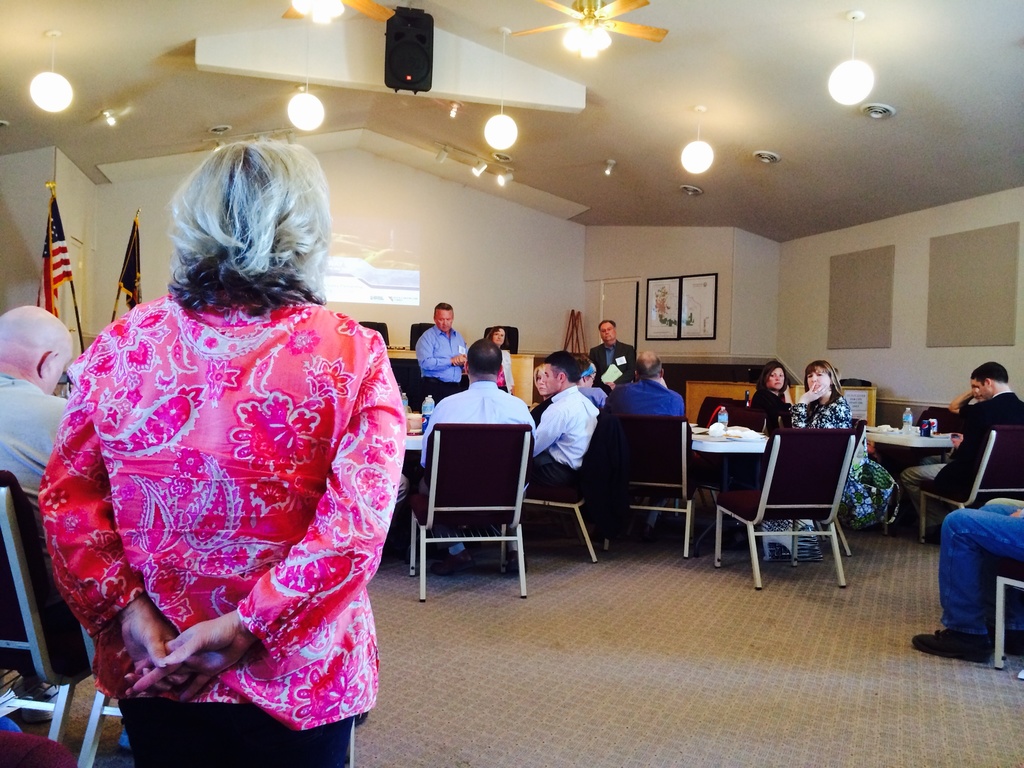
Lori Blattner didn’t get involved earlier this year, when the Kuna School District pushed for a two-year, $6.38 million levy. Blattner spends a lot of time in her three kids’ schools in Kuna, and said she just assumed other parents understood the issue.
She said she feels bad about that assumption, since voters narrowly rejected the levy on March 11. So on Thursday, Blattner stood in front of a few dozen Kuna residents, urging them to reconsider and vote for the same levy on May 20.
From the looks of things, the May levy is firmly in the community’s collective conscience. Parking was scarce at City Hall for Thursdays noon pro-and-con discussion, sponsored by the Kuna Chamber of Commerce. Questions from both sides were pointed, and more than one speaker was admonished to stop debating the speakers and give them a chance to answer.
Supplemental levies are a local decision — and 94 of Idaho’s 115 districts use them to backfill budgets. In Kuna, a rural district and bedroom community to nearby Boise, this levy is also an emotional decision.
The arguments haven’t changed too much from one election to the next.
Supporters maintain that the levy is needed, since it comprises 11 percent of the district’s budget. If the levy fails a second time, the district would be forced to cut days from the instructional calendar, eliminate teaching positions and increase class sizes — and run the risk of losing its best teachers to neighboring districts.
Critics say the district hasn’t done enough to look for savings, and should take a page from neighboring districts and look at outsourcing custodial or bus transportation services. “More of the same is not going to get us the answer,” said Steve Ackerman, who represented the opposition at Thursday’s forum.
These debate have divided the district’s hierarchy. A split school board voted 3-2 to pursue a May levy. The board decision came only 10 days after the March 11 vote, when 52 percent of voters rejected the levy.
District leaders let community leaders do the talking Thursday. Superintendent Wendy Johnson attended, but answered just one question, when a patron asked whether budget information is posted on the district’s website. Michael Law — a trustee who has publicly opposed the levies, and now faces a potential recall election — sat quietly in the audience.
Ackerman said he could possibly support a smaller levy to bridge the district’s financial gap, but only after the budget is scrubbed for any possible savings. He conceded his savings ideas wouldn’t replace a $3.19 million-a-year levy; based on his estimates, outsourcing custodial services would save $133,000. But after years of business as usual, and levies with a hit-or-miss record at the polls, Ackerman believes it’s time to approach the budget differently.
“We’re showing up late to the game,” he said.
Amy Harder wasn’t swayed by Ackerman’s case. The mother of a Kuna kindergartner, Harder said she is going door to door to drum up support for the levy. “I will not let this levy fail, and fail our children.”
Even without Harder’s efforts — and a series of levy town meetings such as Thursday’s Kuna chamber event — it seems almost guaranteed that turnout will be higher for the May 20 election.
On March 11, when the levy was the only question before voters, only 2,193 voters had their say. That represents just 19.6 percent of an electorate that takes in portions of Ada and Canyon counties.
In May, the levy will appear on the primary election ballot, along with a host of contested statewide elections.
